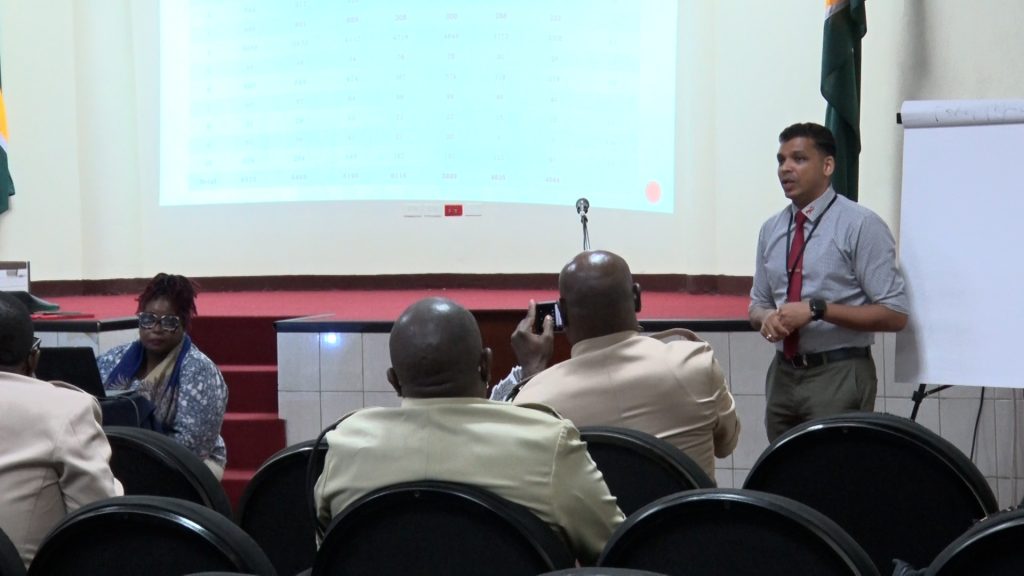
Police commanders receive training on HIV stigma & discrimination
Regional Commanders and Heads of the Guyana Police Force on Wednesday participated in a one-day sensitization session on stigma and discrimination associated with the human immunodeficiency virus (HIV).
The training, which was held at the Officers’ Training Centre, Eve Leary, Georgetown was facilitated by the National AIDS Programme Secretariat (NAPS) and followed several sessions conducted with junior ranks of the Force over the last six months.
“Almost 40 years from the onset of the pandemic, HIV stigma and discrimination, spread largely by ignorance and animus, persists and continues to have a forceful impact on people living with HIV,” NAPS Programme Manager, Dr. Tariq Jagnarine told the officers in his opening remarks.
The training is aimed at building the officers’ core knowledge on the basics of HIV and key populations to help to reduce the stigma and discrimination as well as improve relations when dealing with key populations.

“Among the most significant societal dimensions is the risk of stigma and discrimination which is fueled by ignorance about the basic modes of transmission,” Dr. Jagnarine said, noting that far too many people still lack knowledge about HIV and how it’s transmitted.
Accurate information, he noted, can be a “powerful antidote” to the ignorance that propagates stigma as he asked the officers to have an “open mind” when handling situations involving key populations.
“Despite legal protections and some reduction in ignorance and fear about HIV, people are still denied and fired from jobs, kicked out of residences, ordered to limit contact with family and discriminated against in many ways,” Dr. Jagnarine said
He highlighted that shockingly, healthcare and law enforcement personnel are known to stigmatise persons who have HIV, where in some cases, those persons are refused to be treated and are offered a lower standard of care.
The ranks were also trained on sex and gender; understanding violence against key populations including the characteristics; perpetrators; causes and consequences; recognizing and challenging violence in law enforcement and key population engagement and gender-sensitive reporting.





